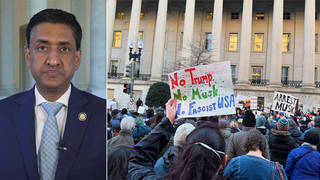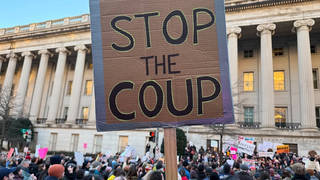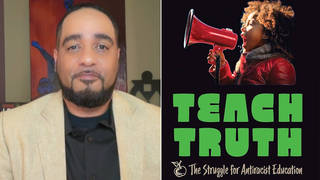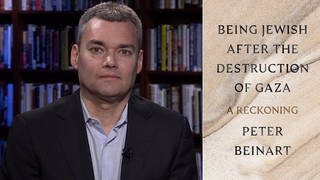
Related
Topics
Guests
- Douglas Colbertbail hearing attorney for Adnan Syed and professor of law at the University of Maryland School of Law. He is director of the Access to Justice pretrial clinic and the founder of the Lawyers at Bail Project, which represents more than 4,000 indigent defendants at bail hearings. In 2013, Colbert helped win a seven-year class action suit that guaranteed indigent defendants their constitutional right to counsel when first appearing before a judicial officer.
Links
The case of Maryland’s Adnan Syed drew national attention last year when it was the focus of Serial, considered the world’s most popular podcast and the medium’s first breakout hit. Syed was convicted of killing his ex-girlfriend in 1999 and has been serving a life sentence. His legal team argues prosecutors failed to interview an alibi witness and that his lawyer failed to inquire about a possible plea deal. Serial became the first-ever podcast to win a Peabody Award for its in-depth look at the case, exploring potential flaws with both the prosecution and with Syed’s defense. After two unsuccessful attempts to appeal his conviction, the Maryland Court of Special Appeals agreed in February to hear arguments about why Syed should get a new trial, based on the contention he had ineffective counsel. A hearing is set for June 9.
Transcript
AMY GOODMAN: This is Democracy Now!, democracynow.org, The War and Peace Report. I’m Amy Goodman. Our guest is Douglas Colbert, an attorney and professor of law at the University of Maryland School of Law. I want to turn right now to the case of Adnan Syed, and we just have a minute. But, of course, it drew national attention when it was the focus of Serial, considered the most popular podcast ever and podcasting’s first breakout hit. It’s the first-ever podcast to win a Peabody Award.
Adnan Syed was convicted of killing his girlfriend in 1999, has been serving a life sentence. His legal team argues prosecutors failed to interview an alibi witness and that his lawyer failed to inquire about a possible plea deal. The Serial podcast provided an in-depth look at the case and explored potential flaws with both the prosecution and with Syed’s defense. In February, the Maryland Court of Special Appeals agreed to hear arguments about why Adnan should either get a new trial—he is now seeking a new trial based on the contention he had ineffective counsel.
You were his bail hearing attorney. Can you talk about the significance of the court’s ruling and what will happen in June?
DOUGLAS COLBERT: Yes, Chris Flohr and I represented Mr. Syed for the first 30 to 35 days after his arrest, and we represented him at two bail hearings. The purpose of ordering his release would have made a tremendous difference, in my opinion, at the trial itself. And had the judge accepted the fact that there were 60 to 70 people from his community who were in court to vouch for his credibility and his appearance in the future—
AMY GOODMAN: Doug, we just have 20 seconds.
DOUGLAS COLBERT: So, what we’re looking at was a prosecution using Adnan’s race, nationality and religion as a reason to keep him in jail. And those are impermissible factors that I only wish had been disregarded by the court.
AMY GOODMAN: Oral arguments June 9th in this case, in the case of Adnan Syed. Doug Colbert, I want to thank you—
DOUGLAS COLBERT: I think it will be delayed, though, Amy.
AMY GOODMAN: Ah, it will. Until when?
DOUGLAS COLBERT: Well, the state has asked for additional time. So, well, we’ll see. Right now it’s still scheduled for June 9th, but there may be a postponement.
AMY GOODMAN: Doug Colbert, professor of law at University of Maryland Law School. He’s also the director of the Access to Justice pretrial clinic and founder of Lawyers at Bail Project.












Media Options